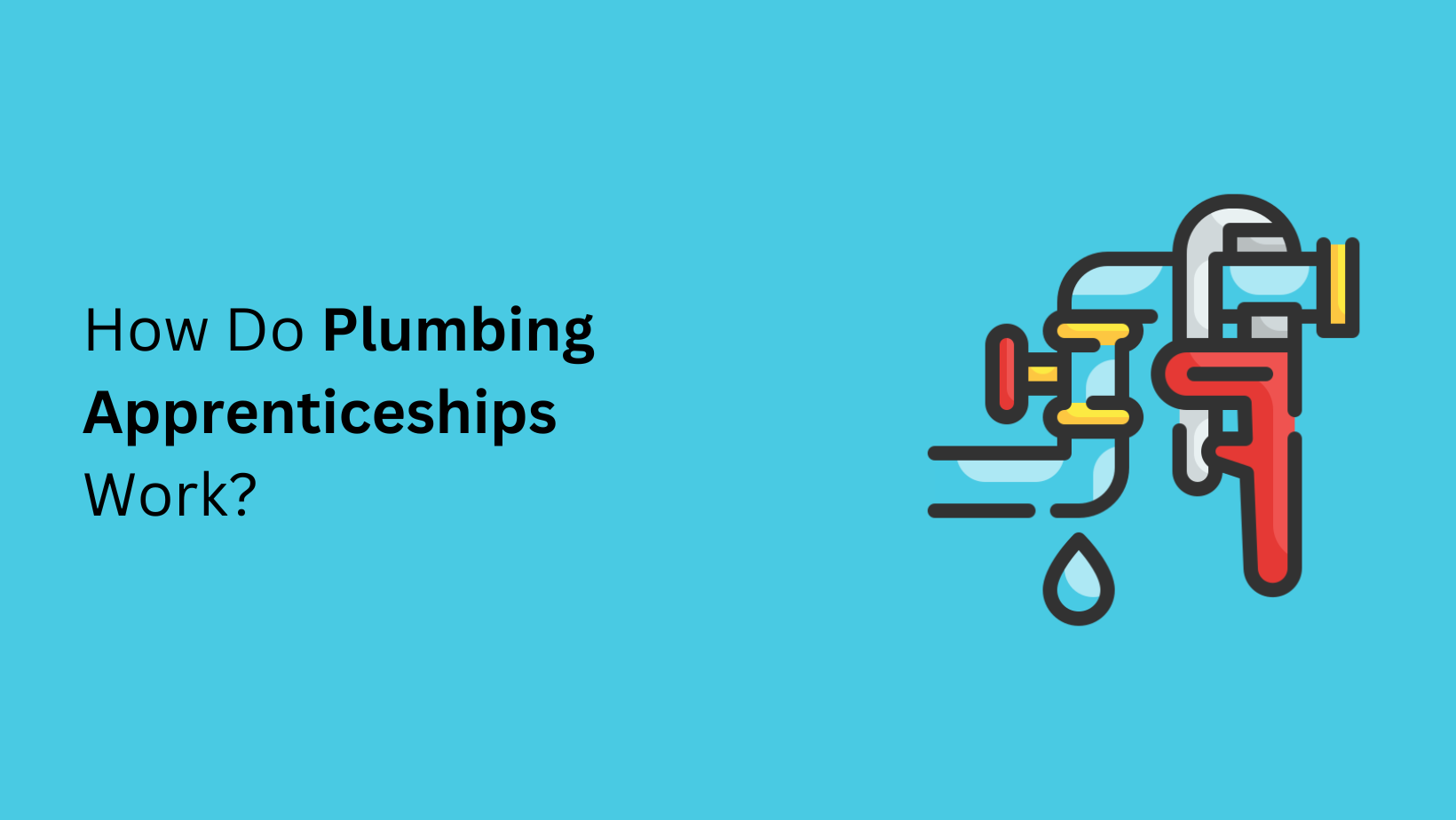Apprenticeships are an excellent way to gain practical skills and knowledge while earning a wage. However, you may wonder, “How do plumbing apprenticeships work?”
Plumbing is an essential trade that ensures the smooth functioning of water and sanitation systems in buildings. For those interested in pursuing a career in plumbing, apprenticeships offer a practical and hands-on learning experience.
This article aims to provide a detailed overview of plumbing apprenticeships, including the application process, training structure, and career prospects.

What is a Plumbing Apprenticeship?
A plumbing apprenticeship combines on-the-job training and classroom-based learning, designed to equip individuals with the necessary skills and knowledge to become qualified plumbers. Apprentices work alongside experienced professionals, gaining practical experience while studying theoretical concepts related to plumbing.
Applying for a Plumbing Apprenticeship
To begin your journey as a plumbing apprentice, you will typically need to meet certain eligibility criteria, including being at least 16 years old and having a minimum level of education, usually GCSEs or equivalent qualifications. The application process may vary depending on the apprenticeship scheme or training provider. It often involves submitting an application form, attending an interview, and taking assessments or aptitude tests to evaluate your suitability for the program.
Finding an Apprenticeship
Several avenues can help you find plumbing apprenticeships in England. Here are some common resources to consider:
- Complete Apprenticeship Guide: Visit our site, which list available apprenticeship opportunities across various trades, including plumbing.
- Training Providers: Contact local colleges, training centres, or vocational institutions that offer plumbing apprenticeship programs. They may partner with employers and can provide information on available apprenticeships in your area.
- Plumbing Associations: Contact professional plumbing associations such as the Chartered Institute of Plumbing and Heating Engineering (CIPHE) for apprenticeship opportunities and advice on starting your plumbing career.
Structure of a Plumbing Apprenticeship
Once accepted into a plumbing apprenticeship, you will typically follow a structured program combining practical work experience and classroom-based learning. Key aspects of a plumbing apprenticeship include:
- On-the-Job Training: Apprentices work alongside experienced plumbers, assisting in various tasks such as installing and repairing plumbing systems, reading blueprints, and maintaining equipment. This hands-on experience allows apprentices to develop skills through real-world application.
- Classroom-Based Learning: Apprentices attend classes or training sessions, usually on a part-time basis, to study theoretical aspects of plumbing. These sessions cover plumbing regulations, pipe installation techniques, safety procedures, and plumbing tools and equipment use.
Duration and Progression
The duration of a plumbing apprenticeship can vary depending on the specific program and level of qualification sought. Typically, apprenticeships can last between two to four years. During this time, apprentices work towards achieving nationally recognised qualifications, such as a Level 2 or Level 3 Diploma in Plumbing and Domestic Heating. These qualifications demonstrate competency and provide a solid foundation for a career in plumbing.
Career Prospects and Opportunities
Upon successful completion of a plumbing apprenticeship, various career pathways become available. Some possibilities include:
- Self-Employment: Many qualified plumbers choose to start their plumbing businesses, offering services to residential and commercial clients.
- Employment with Plumbing Companies: Plumbing apprentices may join established plumbing companies, working on projects ranging from residential properties to large-scale construction sites.
- Further Education: Apprentices who wish to enhance their skills or specialise in specific areas can pursue further education, such as higher-level qualifications or specialised courses.
Summary
Plumbing apprenticeships provide a valuable learning experience for those aspiring to become professional plumbers. Through practical training and theoretical knowledge, apprentices acquire the skills necessary to succeed in the plumbing industry. By following the outlined application process, finding an apprenticeship, and completing the training program, individuals can lay a solid foundation for a rewarding and fulfilling career in plumbing.
